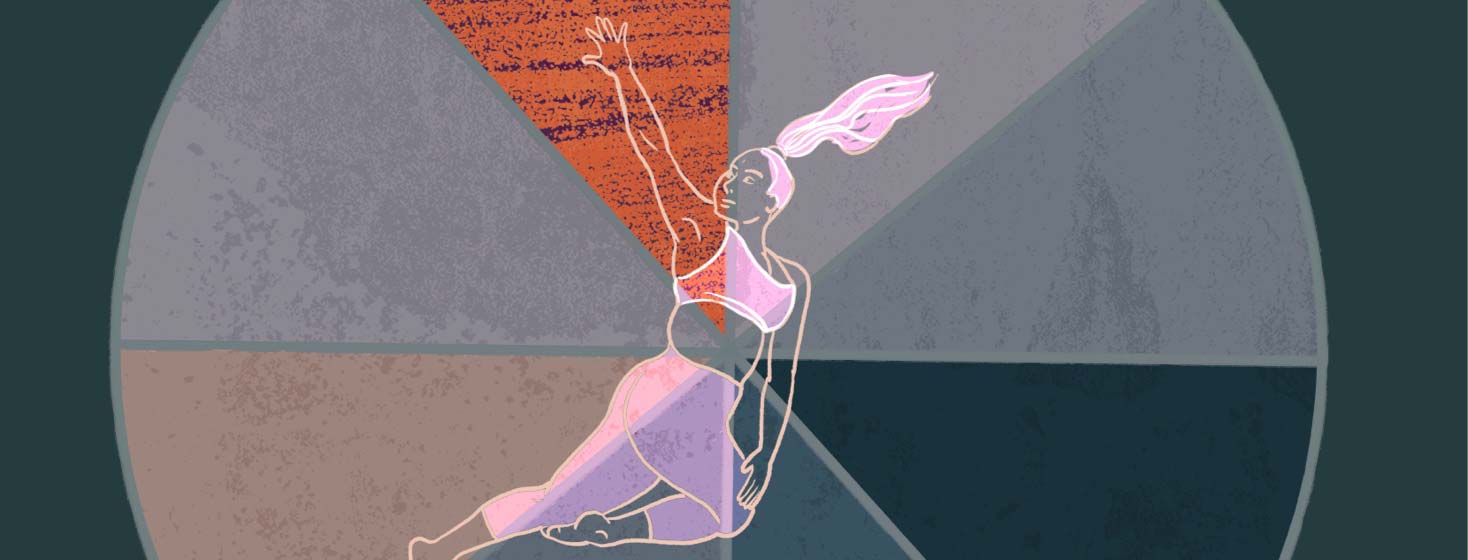Yoga Doesn't Cure My Autoimmune Diseases
"Oh, you have XYZ disease? Have you tried yoga?"
Wow, if I had a nickel for every time someone tossed this cookie-cutter suggestion my way. I'll take another nickel, please, for every time someone was surprised when I answered, "Oh yes, I've been a professional yoga teacher for 15 years, and it's not a treatment for my serious medical condition."
Yoga is not a stand-alone replacement for medical treatment
Yoga and fitness can be helpful in many ways, including decreasing stress, strengthening muscles, improving balance, and more. If you've had a good experience with yoga and fitness, and it makes you feel good – great, I'm so glad! Me too!
But it's not a stand-alone replacement for medical treatment, and it's certainly not a cure. I understand where many people come from when they try alternative therapies because I've been there. I was desperate for relief, for something to work and take the pain away. I desperately wanted to have some sort of control while my body was attacking itself from every angle.
This or That
What helps you push through tough days?
Broad, blanket statements can be harmful
Many of us will try everything we can, and if you find some relief through alternative means, once again, I'm so happy for you! However, these things don't work for everyone, and broad, blanket statements that seem directed at individuals with every type of medical condition can harm community members.
A few specific claims I've been told recently are: "Yoga and exercise alone keeps your thyroid levels under control" and "Have you tried yoga breathing exercises? It will cure your autoimmune disease!"
Why these yoga claims raise red flags
I believe these statements are harmful in several ways:
1. They simply are not true
Where is the science? Where are the peer-reviewed studies to back up these claims? How I wish that a few downward-facing dogs and planks could treat my medical conditions (I was doing enough of them while I was teaching 15 classes per week). I wouldn't have needed all of those pesky surgeries! If it were that easy, no one would be sick, and there would be no need for doctors. In reality, there are no proven cures for my autoimmune diseases, and medical support has been necessary.
2. They can encourage people to deny necessary treatment
Suggesting that a serious autoimmune condition can be controlled simply through exercise may encourage individuals to deny essential medical treatment. I have heard several accounts of individuals repeatedly denying medical treatment prescribed by their doctors, asserting they will control their disease through diet and exercise alone, only to find themselves on the verge of hospitalization as they navigate dangerous and out-of-control symptoms.
3. They fail to consider doctors' advice on safe exercise
Furthermore, not every exercise is suitable for every person, and it can be very important to speak with a doctor when considering changing one's routine. Depending on the condition, a doctor may have some recommendations of specific exercises to do or avoid to better help support different individuals. A doctor may even advise against exercise, for example, if someone is experiencing an unnaturally high heart rate due to a thyroid condition.
4. They perpetuate harmful rhetoric
Statements like this trivialize the pain that rare diseases often cause and imply that individuals who needed medication, surgery, etc., didn't do all they could to get better – that we didn't want to put the work in, so we chose to be sick. And that rhetoric is hurtful.
Final thoughts
I certainly don't want to be sick. My diseases are responsible for my life's lowest and most painful moments; why on earth would I choose this?
Have you ever been told to "just do yoga?" Please feel free to join the conversation in the comments below.

Join the conversation